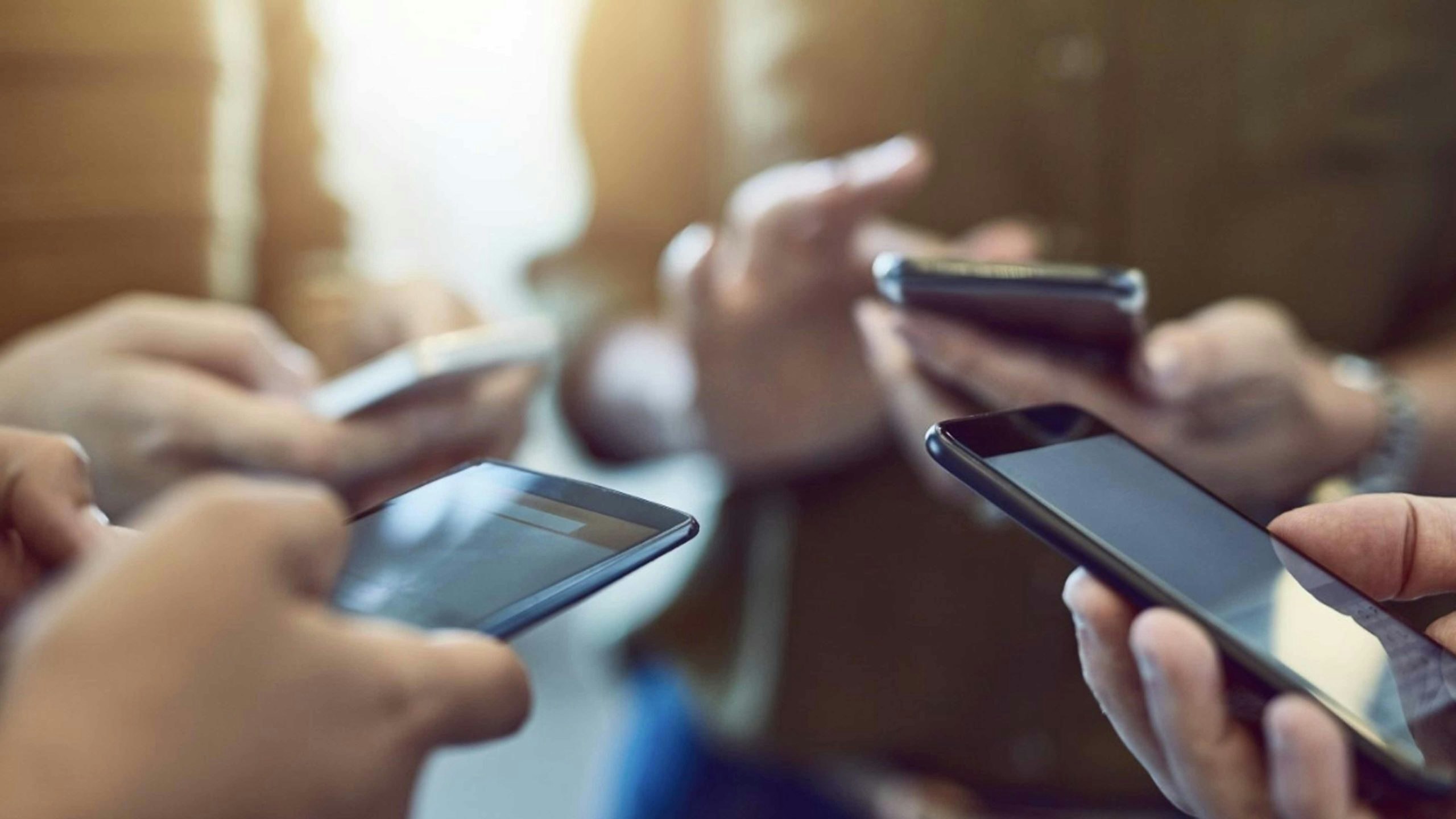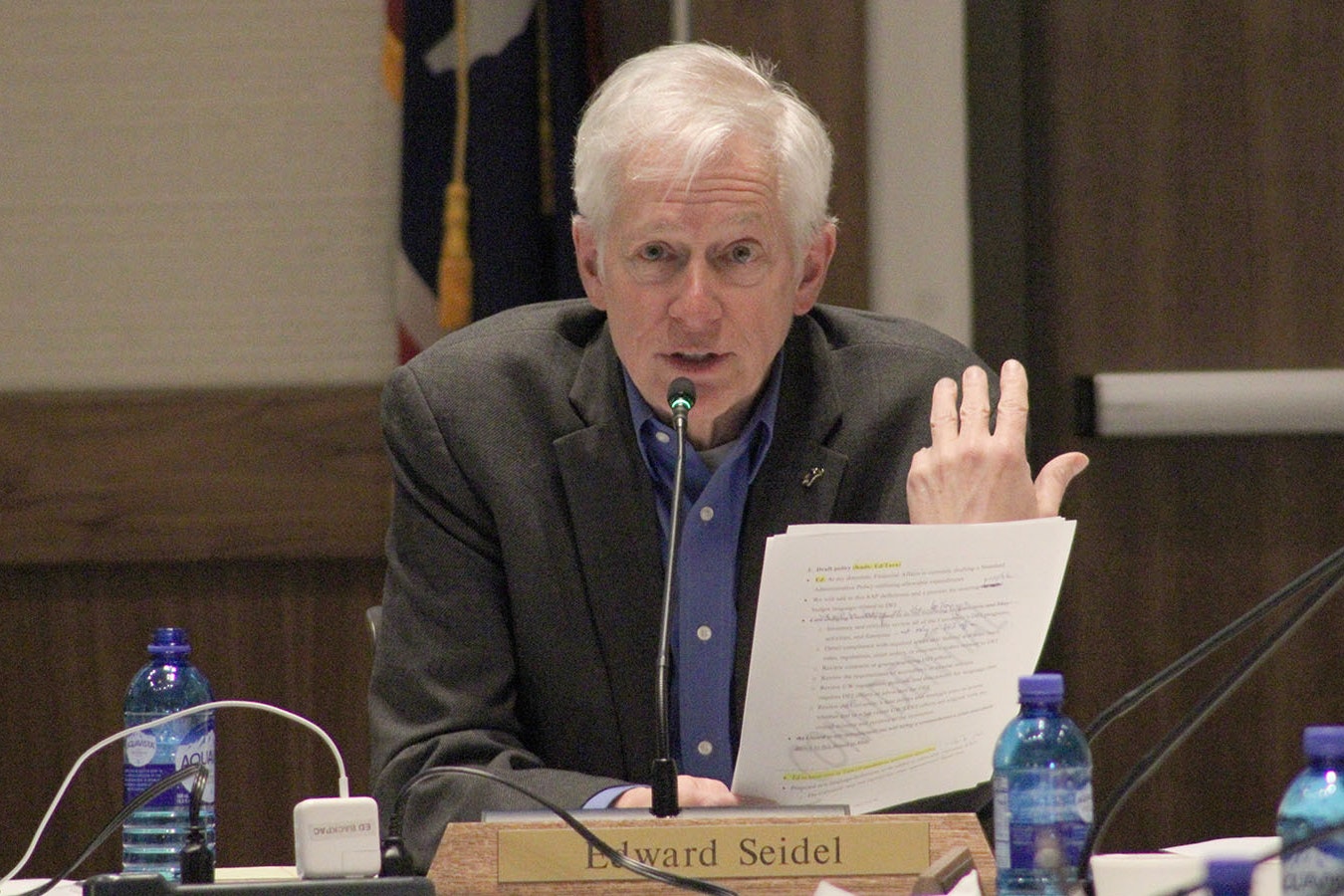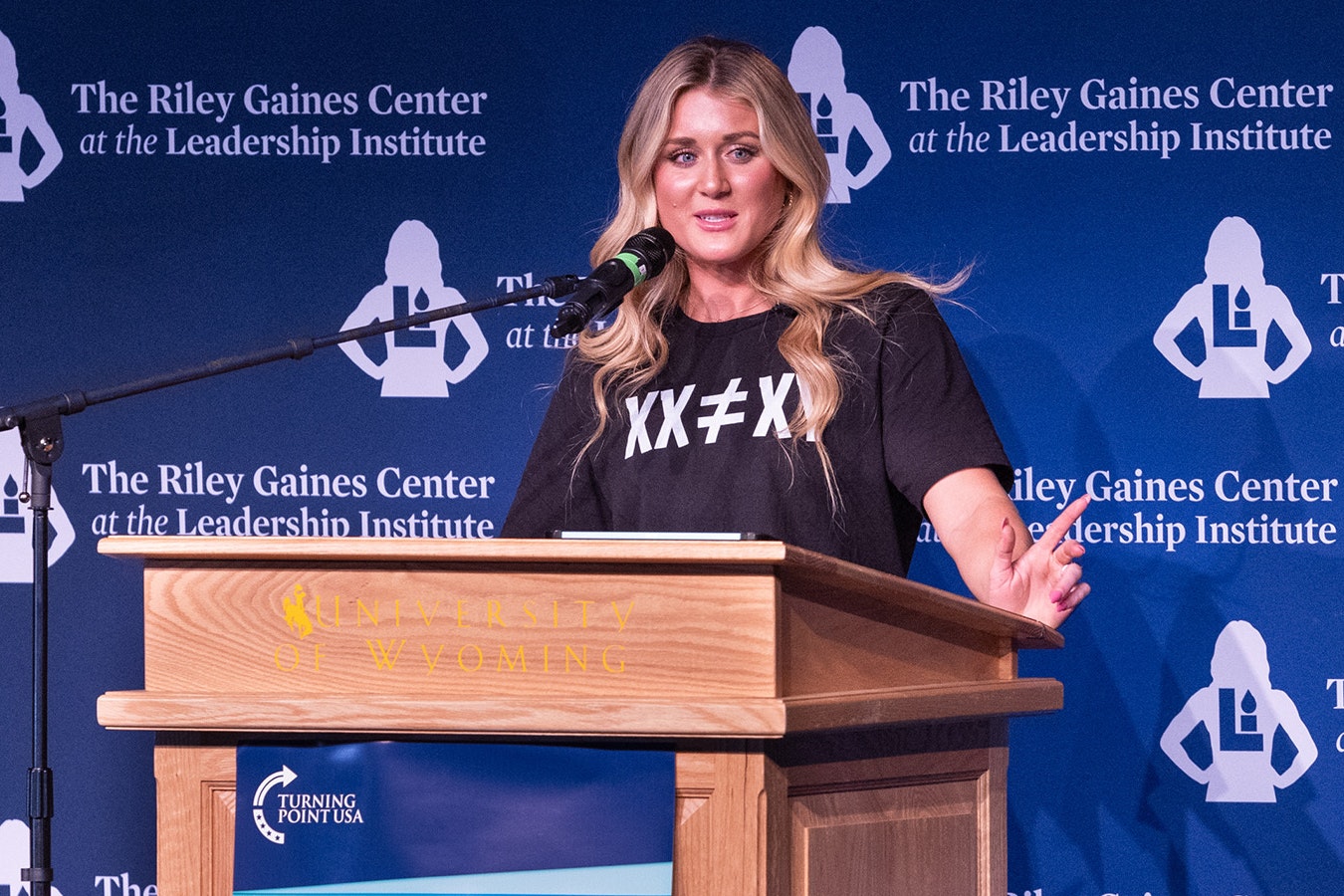By Clair McFarland, Cowboy State Daily
clair@cowboystatedaily.com
In banning cell phones from middle school classrooms and bathrooms, counselors hope to minimize the social and mental wounds that can, with other causes, produce school shooters.
Riverton Middle School (RMS) last week was skewered on social media over a school-wide policy change banning cell phone access by students except between classes, on the lunch hour and in the case of medically necessary exceptions. Many parents and community members worried that the ban would cut children’s access to help in the event of a school shooting.
But a long-term effect of childhood smartphone dependence, along with other factors, could actually worsen the very conditions that lead to desperate acts like school shootings, RMS counselors told Cowboy State Daily on Monday.
‘Dumber’
The counselors in May studied the work of renowned neuroscientist Dr. Bruce Perry. Perry’s research linked a lack of in-person connectedness with tragic mental outcomes.
“(Perry) talked about the lack of connections in schools and how when people talk over social media and Internet and cell phones, it’s a really shallow connection,” said Shayla McNiven, Riverton Middle School counselor. “He even directly addresses the school shootings being from a lack of connectedness with your environment and your school.”
Reflecting on school shootings and childhood trauma, Perry told the Sun Magazine in 2016 that fear is the most common reason people’s brains “shut down,” along with exhaustion, hunger, and thirst.
But “busy-ness” from smartphone stimuli and distraction also shuts down human higher reasoning, “making you dumber… distracting you from thinking,” said Perry, adding that a person constantly distracted can “end up believing anything (they) are told.”
New York Attorney General Letitia James in May announced in the wake of a mass shooting in Buffalo that she is investigating social media platforms and their role in shooters’ psychology. Forbes reported days later that the rise of social media has been linked with a decrease in human empathy.
‘Disconnected’
McNiven was joined by Tara Collins, another RMS counselor, who said for kids, practicing “genuine, face-to-face communication and building those relationships in-person” is vital to their future well-being. A failure to cultivate those skills, she continued, can cause a rift between the child and his or her environment, which worsens dependence on social media relationships, which in turn worsens the child’s relationship with the people that surround him or her daily.
“If they feel rejected, disconnected, that can lead to situations like school shooters or suicides: so many issues, including anxiety and depression and low self-esteem,” said Collins.
She said that the more severe a student’s sense of disconnection from the tangible environment at school, the more he or she may resort to “shallow” online relationships, however anonymous or distant those may be.
“How is this connected to preventing a crisis?” Collins continued, saying of the objections voiced to the cell phone ban, the most common was parents’ fears about not being able to reach their children during school shooting events.
“This (ban) is hopefully something that can even – hopefully – make that not a possibility, if we can just focus on being present and building relationships, and avoiding conflicts and issues with peers,” she said.
McNiven and Collins both acknowledged that the social problems caused by constant smartphone use in kids won’t go away just because phones aren’t allowed in class this fall.
Many conflicts, fights and bullying “start online” but end at school, said McNiven, adding that the majority of middle-school students have smartphone access at home as well as at school.
“We can’t police everything,” Collins agreed. “We can’t be outside of school. But maybe we can make a difference here.”
Smartphones and social media culture aren’t the only factors producing school shooters, the counselors said.
“I think it has contributed but I don’t think it’s the causing factor,” said McNiven, adding, “it definitely contributes to (the) shootings and to mental health issues in general.”
Bullying, Sexualization
The effects of social media and internet exposure in kids are diverse.
Online dating “drama,” the taking and leaking of explicit photographs, intense arguments, bullying, exploitation, data blackmail, chronic distraction, stress, consumerism, bodily self-loathing, screen addiction and sleep deprivation were just a few of the smartphone effects the counselors saw in students in their daily work.
The middle school serves sixth- through eighth-grade students.
Even though some community members railed against the ban on phones in bathrooms as well as classrooms, counselors said they knew the bathroom ban to be important.
It’s there the counselors said, that they’ve seen issues with students taking phones into bathrooms to take “inappropriate pictures” or to fulfill an online peer challenge to post a video of oneself vandalizing school property.
In his own interview Friday, RMS principal Aziz Waheed had expressed frustration with students’ use of social video-share app TikTok to bully their peers not just in the hallway, but across the entire internet. Waheed said he regretted that pre-teens already were laboring under social media “pressures.”
Yet somehow, McNiven said, “It’s difficult to pry (smartphones) from their hands.”
“It’s like a limb,” Collins quipped.
Pseudo-Reality
Even adults struggle with impulse control; with not checking one’s phone every time it buzzes and with maintaining courtesy in online arguments, the counselors said.
While teachers work with all their students every school day, the counselors often work with students who have been referred to them due to social problems. And many of these, said McNiven, are living in “pseudo-reality.”
Whether it’s a cluster of profile-only relationships or the constant pressures of an online game, being stuck in a fake reality at this age damages the arc of natural development, because children are still “developing their world and what they think is normal,” said McNiven.
Children may not be ready to carry the whole world in their pockets.
The National Library of Medicine this year announced that from 2009 to 2019, adolescent depression rose from 8.1% to 15.8%, with teenage girls accounting for most of the spike.
Facebook expanded membership to the general public in 2006. Twitter went mainstream in 2007. Instagram surpassed 1 million registrations in 2010. TikTok launched officially in 2018.
“You’re expecting these teenagers to have adult reactions and the judgement to make good decisions, and adults can’t even do that (online),” McNiven said, adding that the things people do online “have a lot of real-world consequences, that when you don’t’ have long-term thinking, you don’t think about.”
‘Please Monitor’
Parents should be vigilant, said the counselors.
Both McNiven and Collins said they recognize that smartphones have their benefits and can help kids navigate activities and other logistics.
However, parents should monitor children’s smartphone use, internet searches, photograph files and time of use.
The counselors speculated that a thorough search of a child’s phone might surprise some parents.
“You have a right to the phone that you paid for,” said McNiven.





